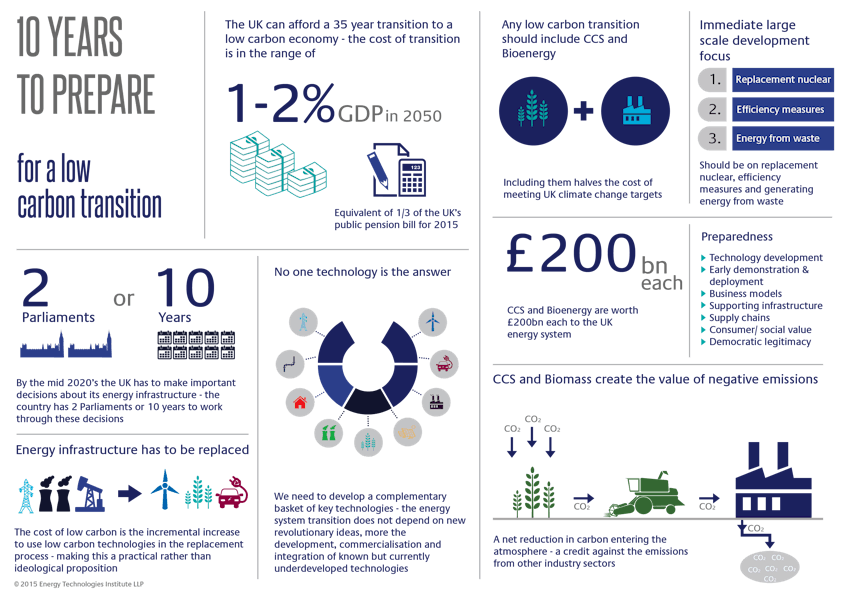Targets, technologies, infrastructure and investments - preparing the UK for the energy transition

Jo Coleman
Director, Strategy Development

Andrew Haslett
Chief Engineer
We have decisions to make
The UK was one of the first countries to take the climate challenge seriously and give the transition an institutional framework. This has allowed it to take an integrated approach to the journey to 2050. It starts with preparing for the mass scale deployment of key technologies by the mid 2020’s.
The UK’s North Sea oilfields began production in the 1970’s and in the decades that followed the country grew accustomed to near-self-sufficiency in primary energy. However domestic oil and gas output eventually began to taper, turning the UK into a net importer by 2004. By 2012 the UK was importing almost half its primary energy.
Energy security remains a key priority, yet it is far from clear what threatens this security most: geopolitical risks and dependency on imports, or domestic issues such as ageing infrastructure, lack of investment, rising energy prices and extreme weather events. Either way, the need to simultaneously remake the energy system in response to these risks and to address climate change represents a significant opportunity.
We have been struck by how little it is appreciated that the supply and use of energy need to be understood as a set of complex, interlinked systems underpinned by substantial investments in infrastructure. Many proposed solutions seem to ignore this. That is why the ETI seeks a broader approach. Our detailed understanding of the UK highlights how very different the energy systems of different countries are and how likely they are to diverge further. The discussion in this paper is based on extensive techno economic analysis by the ETI, the experience gained from over fifty ETI projects, and the expertise of our public and private-sector members. This has enabled us to develop a broad and detailed understanding of how the UK should rise to the challenge of meeting its citizens’ needs for energy services while reducing the catastrophic economic and social consequences of uncontrolled climate change.

Jo Coleman
Director, Strategy Development
Jo Coleman joined ETI as Deputy Director, Strategy Development in September 2011 and was appointed Director, Strategy Development in February 2014. She is a Chartered Engineer and a Fellow of the Institute of Mechanical Engineers.
Andrew Haslett
Chief Engineer
Andrew Haslett joined ETI as Strategy Director in April 2008 and was appointed Chief Engineer in January 2014. He is a Fellow of the Royal Academy of Engineering, the Institution of Chemical Engineers and the Royal Society for the encouragement of Arts, Manufactures and Commerce.
